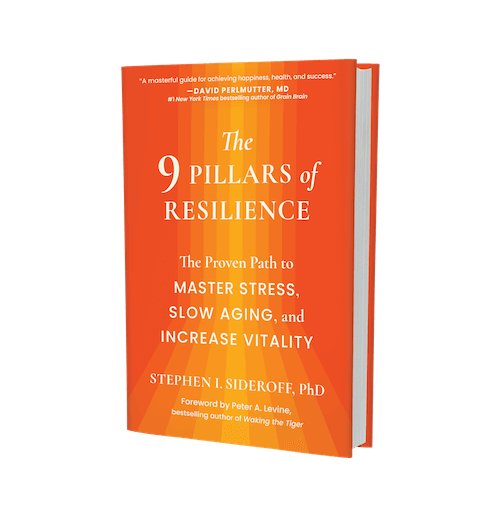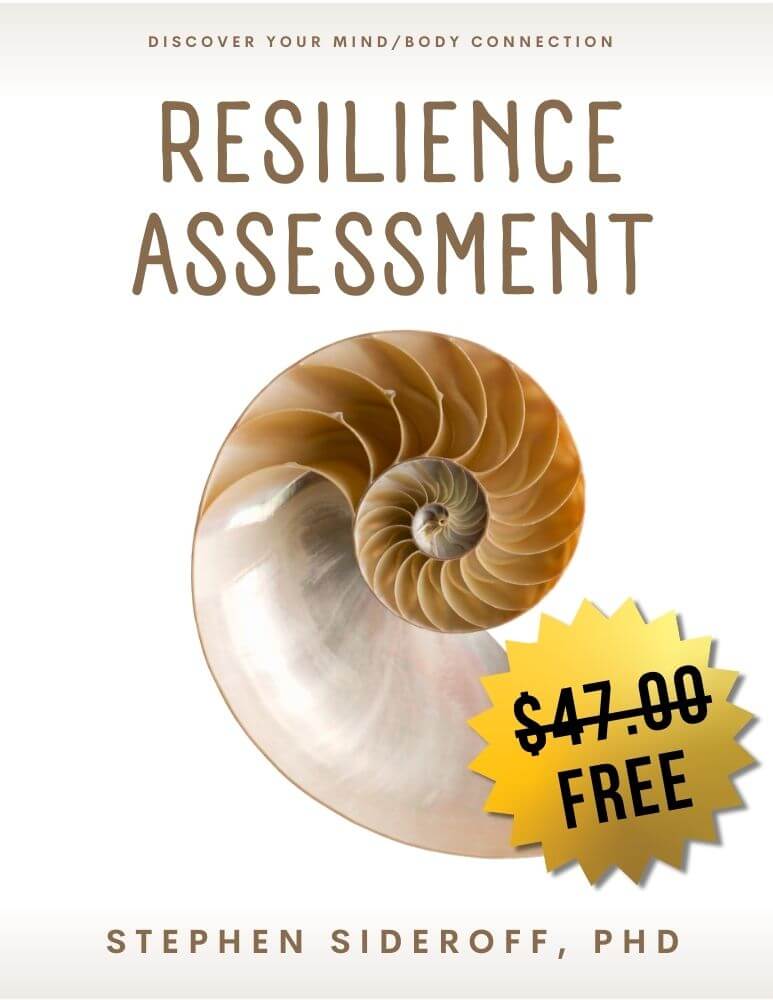[et_pb_section fb_built=”1″ fullwidth=”on” _builder_version=”4.16″ global_colors_info=”{}”][et_pb_fullwidth_header button_one_text=”Click Here” _builder_version=”4.16″ global_colors_info=”{}”]
Learn ways to gain control over your own longevity.
KEY POINTS
- Aging increases vulnerability for most diseases.
- Using the metaphor of the body as an instrument can enhance your ability to be in balance.
- Acceptance and patience are the keys to becoming resilient.
As far back as 70 years ago, Hans Selye—the person who coined the term “stress” as it relates to human behavior—demonstrated that stress can cause damage to the adrenals, gut, and other body organs. He famously coined the phrase, “Aging is simply the sum total of all the stresses we place on our bodies.”
While this was intuitive at the time, there is now a large body of scientific evidence that many aspects of lifestyle influence your rate of aging and thus your longevity. In particular, stress continues to play a lead role and is a major driver of elevated mortality.1,2 For example, in a study looking at the length of telomeres, the protective caps at the end of our DNA strands that shorten with age, Epel and associates found that highly stressed individuals have significantly shortened telomeres.3 The implications are clear: Mastering stress could add years to your life.
Research is now demonstrating this logical conclusion: Mastering stress, as well as making changes to one’s diet that affect metabolic health, can significantly slow down aging as measured by markers of aging, such as length of telomeres and cell methylation.4,5 This is exciting news, strongly suggesting that we can keep our brains and body functioning optimally longer, thus increasing what has been termed “health span.”
Body as Instrument
During one of my meditations, as I was doing a breathing exercise, I imagined my body being a wind instrument. Just as air moves through a clarinet or saxophone to create sound, I was aware of the air moving through my body as I breathed.
How that air moved was a function of the state that my body was in—or, as I reflected, how my body was “tuned.” On days in which I was feeling at my best, I experienced a harmony between my breath, the movement of air, and how my body moved. I felt a smoothness and the process felt very rhythmic. In short, my body felt in tune.
However, on days in which I wasn’t at my best—perhaps because I didn’t get enough sleep, ate the wrong foods, or was a bit too stressed—the breathing meditation felt different. I might have noticed a tension in my body that interfered with the flow of air. At other times, it would be a catch or interruption part way through a breath. The breath didn’t feel as calming or rejuvenating. In these situations, my body was out of tune and the notes that were created by moving air through my body, staying with the analogy, were either flat or sharp.
Optimal Functioning and Longevity: Finding and Staying “In Tune”
Like any instrument, when you are “in tune,” your body functions at its best. Using a different analogy, imagine how a car functions. When a car with a gas engine and pistons is in tune, it’s running on all cylinders. When you accelerate, the process is smooth.
The result is a minimum of wear and tear and you get good gas mileage. In other words, it’s running most efficiently.
On the other hand, if the car is out of tune, the firing of some of the pistons will be off and the car will have less power and will get poor gas mileage. And when you go up a hill (analogous to the stress placed on your body), you will have greater difficulty getting to the top. It needs to work harder to achieve the same results. A car that’s out of tune might have an extra vibration. It might skip or stutter. It doesn’t feel right. This results in greater wear and tear on its parts, more breakdowns, and faster aging.
Noticing if Your Body Is in or Out of Tune
If you take a few moments right now to put everything aside and focus on your breath, it’s possible to assess your own level of being tuned up. What do you feel in your chest, your throat, your jaw, or your shoulders? If you follow the air moving in and out of your body, is it smooth, or do you notice that something is just a bit off?
Most of us keep our bodies activated (stress response) when there is no danger or real stress. Remember, an imagined danger—or worry—creates the same physiological response as a real danger. Your body doesn’t take any chances and will err on the side of preparing for danger any time it doesn’t feel safe. If you expect something to go wrong, then uncertainty can keep your body activated.
What do you notice when you get into bed to go to sleep? As you leave the noise and activity behind, do you still feel the day’s activities reverberating in your body and your mind? These are additional indications of your instrument being out of tune.
Getting on the Path of Resilience and Harmony: Tuning Your Body
As you engage in the process of becoming more “in tune” and thus more resilient, it’s important to remember that it’s not like going to the wall and turning on or off a light switch. Old patterns are long-standing and the result of conditioned habits. They take an ongoing and consistent intention and engagement. The only way this happens is one step at a time. This requires patience and acceptance.
Start noticing how your existing internal voice is not totally serving you. Whenever it is critical or judgmental, it is undermining you. It’s important to notice all the ways it implies that you are not OK.
In its place, I suggest you begin establishing a healthy internal voice. This voice comes from a place of love, compassion, acceptance, support, and care. This is clear-cut. There is no wiggle room. The more you can identify where you are being negative or judgmental, and then switch into coming from this healthy internal voice, you are putting yourself on the path of resilience. And this can help ensure your greatest longevity.
For additional resources, visit www.DrStephenSideroff.com
References
1. M. Kivim€aki, A. Steptoe, Effects of stress on the development and progression of cardiovascular disease. Nat. Rev. Cardiol. 15, 215–229 (2018).
2. S. Cohen, “Psychological stress, immunity, and physical disease” in Scientists Making a Difference: The Greatest Living Behavioral and Brain Scientists Talk about Their Most Important Contributions, S.
3. Epel ES, Blackburn EH, Lin J, et al. Accelerated telomere shortening in response to life stress. Proc Natl Acad Sci U S A. 2004;101:17312–17315. [PMC free article] [PubMed] [Google Scholar]
4, H Lavretsky 1, E S Epel, P Siddarth, N Nazarian, N St Cyr, D S Khalsa, J Lin, E Blackburn, M R IrwinA pilot study of yogic meditation for family dementia caregivers with depressive symptoms: effects on mental health, cognition, and telomerase activity. Int J Geriatr Psychiatry, 2013 Jan: 28(1):57-65. doi: 10.1002/gps.3790. Epub 2012 Mar 11
5. Kara Fitzgerald, with Kate Hanley, Younger you: Reverse your bio age – and live longer. Hachette/New York. 2022
[/et_pb_fullwidth_header][/et_pb_section]

